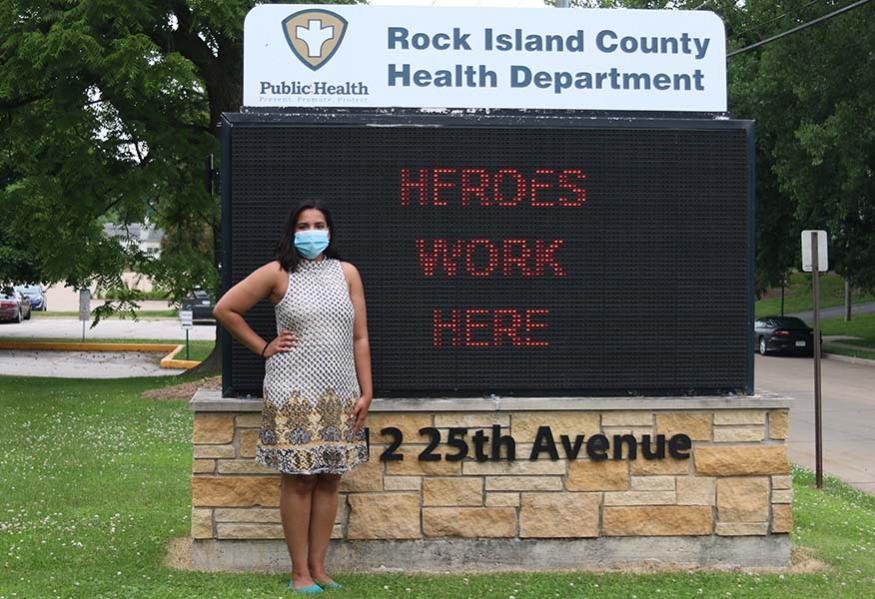
Krishna Marmé '20 interned with the Rock Island County Health Department last spring; she will pursue an MPH in Policy at the University of Iowa this fall.
Studying public health in the time of COVID-19
As COVID-19 continues, public health students have had their eyes opened to potential new paths, and seen that their work is of the utmost importance.
Augustana offers many public health experiential learning opportunities in normal times—from internships and research assistantships to campaigns for campus health, sexual health fairs, and more. This spring, distance learning has led to other ways students can learn about public health from the middle of a crisis, including analyzing how different branches of society such as healthcare systems and governments react to the pandemic in real-time.
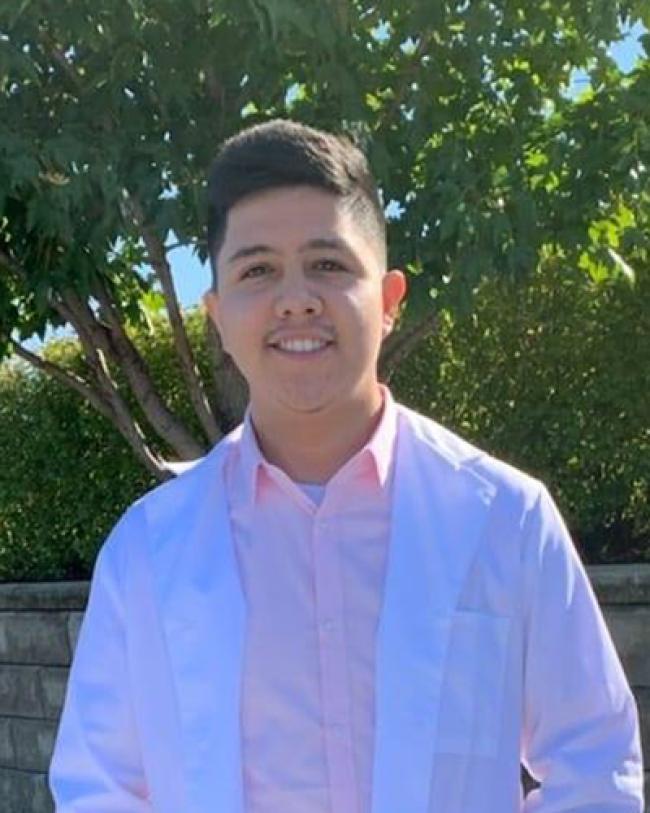
DiAngelo Gonzalez ’21, a first-generation college student with a double major in public health and biology, said the combination of his majors and the tools he has been given have “undoubtedly prepared” him for the current pandemic. He understood the importance of his public health major before the pandemic, but this situation has increased that understanding.
“Not only has it made me appreciate the field in ways I couldn't have before all of this started happening,” he said, “it has also made me realize that things cannot go back to the way they were before COVID-19. Our public health system needs to change and I believe that after all of this settles, it will change for the better.”
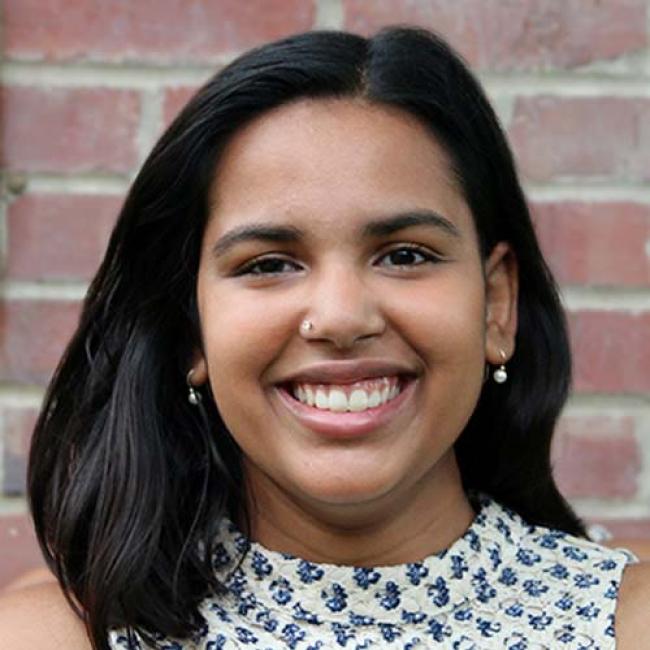
Krishna Marmé ’20, a double major in public health and political science, interned with the Rock Island County Health Department. She credits that experience alongside her major with preparing her to be an advocate for the health of her community.
After taking a course taught by Dr. Lena Hann, Augustana assistant professor of public health, Marmé began to see how public health touches all majors, including political science. “What drew me in was how impactful public health is and how much I could learn from this program. My goal was to find a major where I could learn how to help people—and this major fits the bill.”
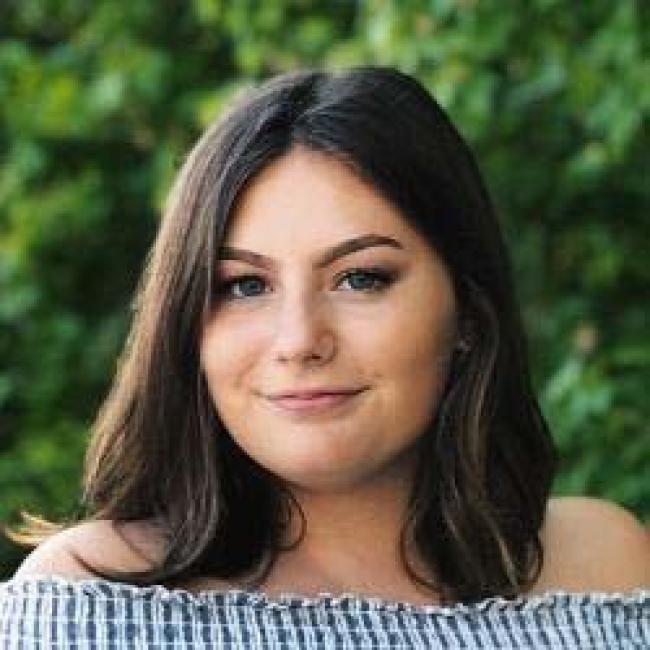
Caroline Wator ’20 was attracted by the practicality of the issues her major deals with. “An example that comes to mind right now is Dr. Heick’s epidemiology class, where we discussed the ways our healthcare system would be unprepared if a public health emergency were to occur,” she said.
“Two years ago, sitting in that classroom, I certainly did not think that the public health emergency would be impacting us so soon, but it definitely could not be written off as some imaginary idea.”
A field in the global spotlight
The COVID-19 crisis has greatly increased awareness of the field of public health. “Many important aspects of public health and the critical need for public health experts and infrastructure have been highlighted during the response to this emerging virus infection,” said Augustana trustee Dr. Diane Griffin ’62, a professor at the Johns Hopkins Bloomberg School of Public Health and vice president of the National Academy of Sciences.
She explained that it was public health-oriented science that “identified the virus, developed diagnostic tests, is tracking virus evolution as it spreads, determined its reservoir in bats and how it has ‘jumped’ to humans.”
Augustana’s Dr. Rebecca Heick ’96, an assistant professor of public health, said that right now “there is an opportunity to see how an outbreak becomes an epidemic and how an epidemic becomes a pandemic. It brings to light lessons on the importance of ensuring epidemiologic studies are developed and carried out using robust scientific approaches and how messy and complex the real world of epidemiology is.”
The difference between the terms “public health” and “epidemiology,” Dr. Heick noted, is a significant one. “Public health is the art and science of preventing disease, prolonging life, and promoting health in communities through organized, evidence-based efforts and partnerships with a wide range of organizations and professions.”
When public health is pulled off smoothly, it often “seems largely invisible” and focuses on prevention and proactive strategies, yet affects everything from water and food supply to roadways.
Epidemiology, meanwhile, is the science that informs action taken in public health. According to Dr. Heick, “epidemiologic studies are the way we identify risk and protective factors in populations.” Epidemiology has been critical in predicting the effects of measures to limit spread, such as restricting travel, closing schools and restaurants, and social distancing.
“Public health professionals are contributing in all of these areas,” Dr. Griffin said. “These questions—and answers—are important for not only informing the response, but also providing new knowledge.”
This pandemic has really shined a light on the importance of the interdisciplinary education our students receive…. Because of their immersive experiences, our students have been able to face these tough times with professionalism and poise.
Opportunities for the future
While public health work is essential, it is often done out of the public eye. For Wator, “Seeing public health workers now on the frontlines of this really shows how prepared and committed they are,” she said.
The pandemic has similarly changed Gonzalez’s perspective on his major. “A lot of people don't realize just how much public health impacts their day-to-day lives. Fire extinguishers, stop lights, vaccines... all of these things are public health at play and have improved our daily lives significantly.”
Dr. Heick insists that the current situation, while a learning opportunity, is also a wake-up call. “I have seen repeated examples of the amount of work that remains to be done if we are to truly fulfill public health’s mission of prevention, protection and promotion for every population in the nation,” she said. “This pandemic has provided evidence of a great need for change.”
These lessons may be some of the most important Augustana’s public health professors can impart to their students. Public health majors such as Gonzalez, Marmé and Wator represent a new generation of health workers who can take those lessons to heart.
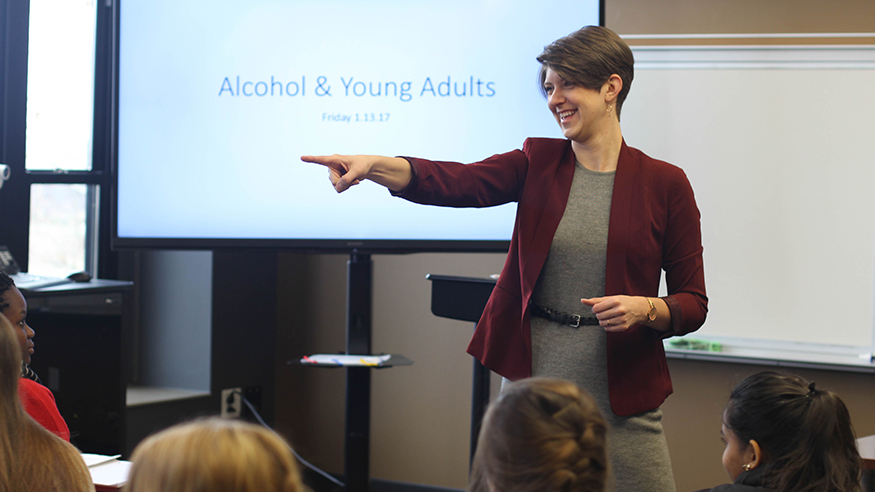
Dr. Lena Hann teaching an introductory Global Issues in Public Health class, including Krishna Marmé at far right, in 2017.
By Jack Harris ’20, Augustana Writers Bureau
